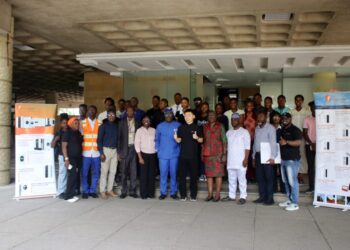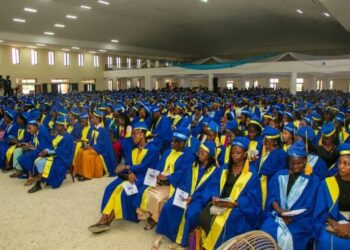The Minister of Education, Dr. Tunji Alausa, has explained that the establishment of the Federal University of Environment and Technology was a strategic move by the Federal Government to tackle pressing environmental challenges in Nigeria and globally.
Alausa made the remarks in Abuja during the inauguration of the university’s governing council and principal officers.
Located in Koroma, Rivers State, the institution is the first of its kind in Nigeria, dedicated exclusively to environmental sciences. President Bola Tinubu approved the university’s creation in February 2025.
According to the minister, the university is not just an expansion of higher education but a targeted response to critical environmental issues. He said it would serve as a hub for research in areas such as renewable energy, climate change adaptation, disaster risk management, and sustainable technology.
“This university is envisioned as a centre of excellence in environmental sciences,” Alausa stated. “It is expected to generate homegrown solutions that meet both local needs and global standards.”
He noted that the selection of Koroma/Saakpenwa in Rivers State—an area rich in natural resources and environmental complexities—was intentional and symbolic.
Addressing the newly inaugurated council members, Alausa urged them to demonstrate strong leadership, ensure accountability, uphold integrity, and promote merit and institutional autonomy. He emphasized the importance of adhering to due process and aligning with the government’s broader education policies.
“Today’s inauguration is another key step toward expanding access to quality education, especially in fields critical to national and global development, such as environmental sustainability and technological innovation,” he said.
The minister warned against politicizing the institution’s leadership, stressing that its success would depend on the character and collective wisdom of those in charge.
He also congratulated the vice-chancellor and other principal officers, urging them to lay a solid foundation for future generations by prioritizing academic excellence, faculty development, student welfare, community engagement, and strategic partnerships.
“You must work hand-in-hand with the governing council, the host community, and relevant agencies to build an environment of peace, innovation, and productivity,” Alausa said. “Your efforts will not only define the university’s future but also contribute significantly to the sustainable development of the Niger Delta and Nigeria as a whole.”
















































































 EduTimes Africa, a product of Education Times Africa, is a magazine publication that aims to lend its support to close the yawning gap in Africa's educational development.
EduTimes Africa, a product of Education Times Africa, is a magazine publication that aims to lend its support to close the yawning gap in Africa's educational development.